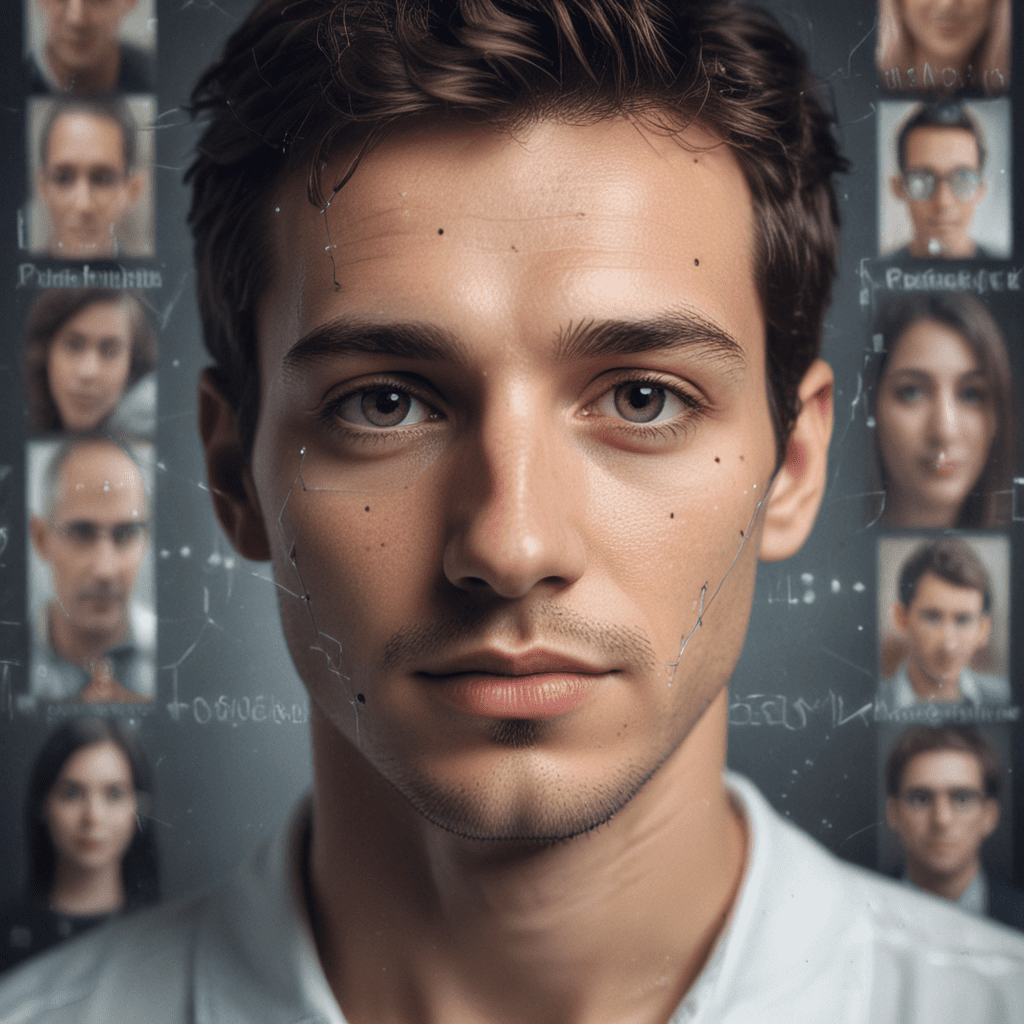
Facial Recognition in Social Media: An Overview and Privacy Concerns
I. Introduction
Facial recognition technology has emerged as a powerful tool in the realm of social media, offering convenience and personalized experiences. It enables users to tag friends in photos, unlock their devices, and even make purchases. However, this technology also raises significant privacy concerns, sparking debates about the potential for misuse and surveillance.
II. Privacy Concerns
One primary concern is the collection of biometric data without consent. Facial recognition systems capture and store unique facial features, creating a digital fingerprint that can be used to identify individuals. This data is often collected without users' explicit knowledge or permission, raising fears of unauthorized access and potential misuse.
Moreover, facial recognition technology has the potential to be used for surveillance and tracking. Law enforcement agencies and governments could potentially use this technology to monitor individuals' movements and activities, raising concerns about erosion of privacy and freedom.
III. Legal and Regulatory Issues
The use of facial recognition technology in social media is currently governed by a patchwork of laws and regulations that vary across jurisdictions. Some countries have enacted specific laws to address the privacy implications of facial recognition, while others rely on broader data protection frameworks. However, these laws often lack clarity and comprehensiveness, leaving room for interpretation and potential loopholes.
IV. Technical Limitations
Despite its advancements, facial recognition technology is not without limitations. Accuracy and reliability issues can lead to false positives and false negatives, raising concerns about wrongful identification and discrimination. Additionally, the technology is vulnerable to spoofing and hacking, which could allow unauthorized individuals to gain access to personal data.
V. Social Impact
The widespread use of facial recognition technology in social media has significant implications for society. It can erode privacy and trust, leading to a sense of unease and fear among individuals. Psychological effects, such as anxiety and paranoia, can arise from the constant surveillance and monitoring that facial recognition technology enables.
VI. Solutions to Privacy Concerns
To address the privacy concerns associated with facial recognition in social media, several solutions have been proposed:
- Informed consent and transparency: Users should be clearly informed about the collection and use of their facial data. They should have the option to opt in or out of facial recognition features and should be provided with regular updates on how their data is being used.
- Data minimization and encryption: Social media companies should only collect and store the minimum amount of facial data necessary for the intended purpose. This data should be encrypted and stored securely to prevent unauthorized access.
- Artificial intelligence for ethical facial recognition: AI algorithms can be developed to ensure that facial recognition is used fairly and ethically. These algorithms can detect and mitigate bias, improve accuracy, and prevent the misuse of facial data.
VII. User Empowerment
Empowering users is crucial to protecting their privacy in the face of facial recognition technology:
- Control over personal data: Users should have the right to access, correct, and delete their facial data. They should be able to set preferences and restrictions on how their data is used and shared.
- Options to opt out of facial recognition: Users should have the option to opt out of facial recognition features and to have their facial data removed from social media platforms. This option should be easily accessible and should not require users to disable their accounts.
VIII. Industry Best Practices
To ensure the responsible use of facial recognition technology in social media, industry best practices must be established:
- Adherence to ethical guidelines: Social media companies should adhere to ethical guidelines developed by privacy experts and industry leaders. These guidelines should address issues such as consent, transparency, and data minimization.
- Collaboration with privacy advocates: Social media companies should work closely with privacy advocates and researchers to identify and address privacy concerns. This collaboration can help ensure that facial recognition technology is developed and used in a responsible and ethical manner.
IX. Future Trends
The advancement of facial recognition technology will continue to shape its use in social media:
- Advancements in facial recognition technology: Improvements in accuracy, reliability, and speed will make facial recognition more effective and versatile. This will lead to new applications and possibilities while also raising new privacy concerns.
- Implications for privacy protection: The widespread adoption of facial recognition technology will require robust privacy protections to ensure that individuals' rights are not violated. New laws and regulations may be needed to address these concerns.
X. Conclusion
Facial recognition technology offers both convenience and privacy risks in social media. By implementing robust privacy protections, empowering users, and adhering to ethical guidelines, social media companies can harness the potential of this technology while safeguarding the privacy of their users. A balanced approach is needed to strike the right balance between innovation and privacy in the era of facial recognition.
FAQ
What is facial recognition?
Facial recognition is a technology that uses unique facial features to identify individuals.How is facial recognition used in social media?
Social media platforms use facial recognition to tag friends in photos, unlock devices, and make purchases.What are the privacy concerns associated with facial recognition?
Privacy concerns include the collection of biometric data without consent, potential for misuse and surveillance, and discrimination and bias.
How can I protect my privacy from facial recognition?
Users can opt out of facial recognition features, control their personal data, and support companies that adhere to ethical guidelines.What is the future of facial recognition in social media?
Advancements in technology and the need for privacy protection will shape the future of facial recognition in social media.


